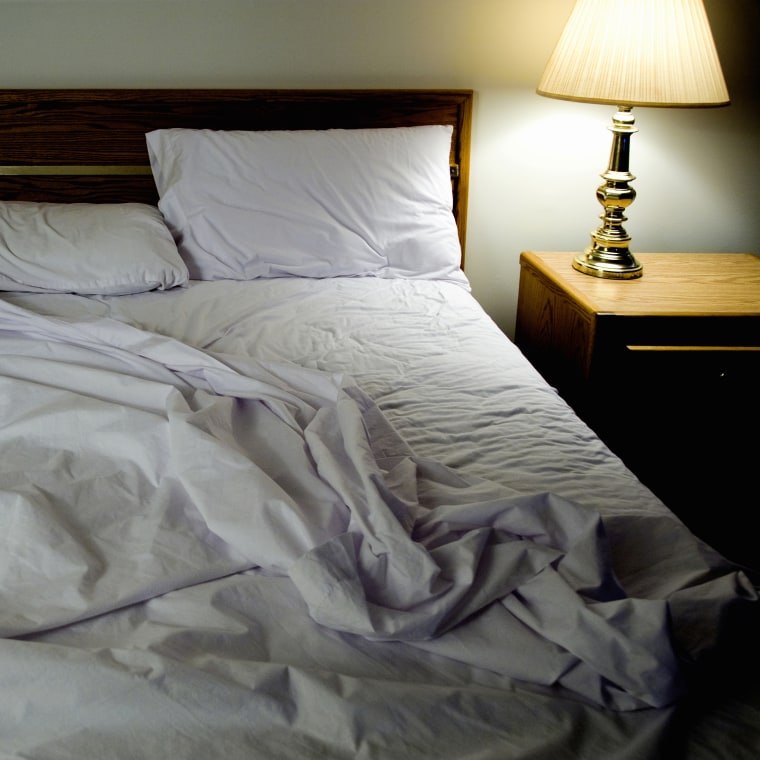Sometimes when Dawn Alexis Anderson wakes up nothing seems familiar, not the walls of her room, not the bed she is sleeping in, not the man lying next to her. A few desperately long minutes pass before she recognizes where she is. Her frightening condition, called "sleep drunkenness" or "confused arousal," is more common than previously thought, a new study shows.
“It’s very, very scary,” says the 42-year-old wardrobe stylist from Dover, Del. “I have to kind of get a grip on myself to keep from freaking out. I’ll sit there frightened, trying to recognize or recall something from memory.”

In fact, one in seven Americans occasionally experiences a disorientation upon awakening that typically lasts a few minutes but can go on much longer, according to the study published in Neurology Monday. One in 12 will awaken to confusion at least once a week.
“I was very surprised,” said Dr. Maurice Ohayon, the study’s lead author and a professor of psychiatry and behavioral sciences and director of the Stanford Sleep Epidemiology Research Center. “We had thought that it was not so frequent.”
While 5 to 15 minutes of confusion may seem brief, the condition can have a darker side.
“A lot of things can occur in 15 minutes,” explained Ohayon. “If it’s a person with responsibility and they are awakened in the middle of the night, they will not have the right answer to a problem. Or imagine a pilot in a plane taking a nap and awakening to a bad situation. He may make a bad choice.”
For the study, Ohayon and his colleagues surveyed 15,929 Americans, a nationally representative sample, about their sleep.
Among those who suffered confused arousals, 36 percent also had sleep-related hallucinations, while 15 percent reported episodes of nocturnal wandering. Nearly half of the time, the wandering was accompanied by violent behaviors during sleep.
Episodes were more likely to occur in people who suffered disorders like insomnia, the sleep-deprived — and those who were getting too much sleep. The episodes were more common among people with major depression, anxiety disorder and bipolar disorder. They also seem to be associated with certain kinds of medication, such as antidepressants — but not with sleeping pills.
This is “one of the most important, if not the most important epidemiological study looking at confused arousals,” said neurologist Dr. Alon Avidan, director of the Sleep Center at the University of California, Los Angeles.
“Confused arousals are considered to be a parasomnia, an abnormal behavior or event that occurs during sleep, like sleep walking. This specific type [leaves] patients who experience them confused and disoriented. They appear to be awake, but their brains are still very much asleep.”
One of the big dangers of confused arousals is that people can become violent when they are confused and disoriented, Avidan said. “They can lead to aggressive behaviors,” he explained.
Ohayon suggests that people who experience confused arousals often — once a week or more — see a physician. “You cannot go on like that for long,” he said.
There is no specific treatment although doctors may treat other conditions associated with confused arousal.
But even when confused arousals occur less often, they can still be disturbing.
The once-a-month episodes Anderson experiences can shake her to the core, leaving an unpleasant sensation that lasts through the day. “I do have concerns,” Anderson said. “What is to stop me from going outside when it happens?”
Linda Carroll is a regular contributor to NBCNews.com and TODAY.com. She is co-author of "The Concussion Crisis: Anatomy of a Silent Epidemic”and the recently released “Duel for the Crown: Affirmed, Alydar, and Racing’s Greatest Rivalry”
